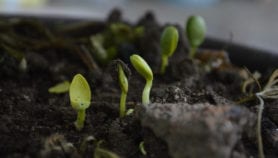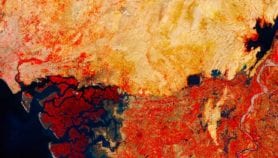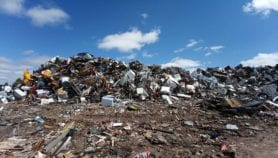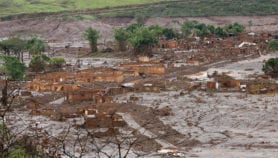By: Eva Aguilar
Send to a friend
The details you provide on this page will not be used to send unsolicited email, and will not be sold to a 3rd party. See privacy policy.
Climate change may lead to the collapse of coral reef ecosystems in the Pacific, of the kind last seen 4,000 years ago, according to a study published in Science last week (July 5).
Researchers found that coral reefs along the Pacific coast of Panama stopped growing for 2,500 years, or 40 per cent of their history, during a period of time that coincides with an increase in the strength and frequency of the El Niño-Southern Oscillation (ENSO) — a fluctuation of the inter-tropical surface pressure patterns and circulation in the Indian and Pacific Ocean — some 4,000 years ago.
This gap in coral growth, also seen from sites in Australia, Costa Rica and Japan, may correspond to a Pacific-wide ‘collapse’ in reef ecosystems, which could repeat in the future if climate warming creates a stronger and more frequent ENSO pattern, as is predicted by current forecasts, say the study’s authors.
Higher water temperatures, caused by climate events like El Niño, disturb the symbiotic relationship between corals and the microalgae living inside them, which provide nutrients for the corals to grow faster.
"Global climate change is probably driving eastern Pacific reefs towards another regional collapse," the authors say.
"Many of the scenarios for future climate change caused by human emissions of greenhouse gases predict extreme conditions similar to what we saw in the fossil record and that seem to explain the shut-down of the reefs," Richard Aronson, a biologist at the Florida Institute of Technology in the United States, and one the authors of the study, told SciDev.Net.
"If we keep pumping carbon dioxide into the atmosphere, we could be in for another long-term collapse of coral reefs, which would be very bad for the developing world," Aronson added.
Around 500 million people, mainly living in the tropics, depend on the services that coral reefs provide, such as fisheries and tourism. But in the past three decades, scientists have reported a dramatic increase in coral mortality and reef degradation due to their vulnerability to environmental change, which could have the most far-reaching effects on the Pacific and Caribbean regions, and threaten traditional fisheries.
But Héctor Guzmán, a marine biologist at the Smithsonian Tropical Research Institute (STRI) in Panama, told SciDev.Net, there is growing evidence that some coral species in the eastern Pacific are becoming more heat-tolerant.
"In modern times we have seen the resilience of coral reefs, less than two decades after several severe ENSO [events] that affected Panama and the adjacent region."
So Guzmán, who also runs STRI’s Panama Coral Reef Monitoring Network, said that talking about a future "collapse" could be an "exaggerated" way of presenting the issue.
Aronson agreed there was some evidence that the corals were adapting, but warned that "the eastern Pacific coast seems not to do so well during El Niño".
References
Science doi: 10.1126/science.1221168 (2012)













